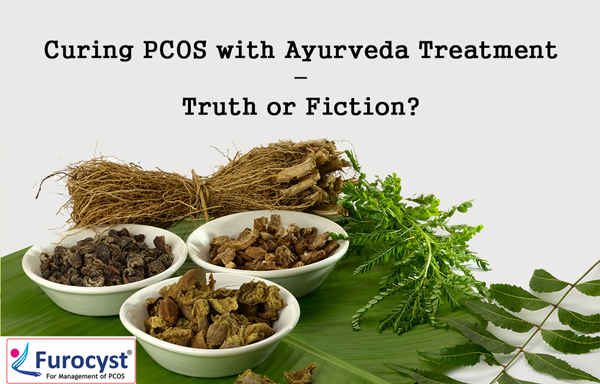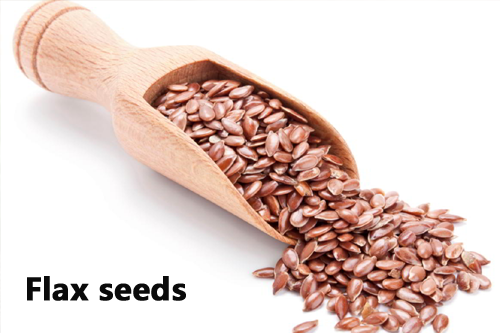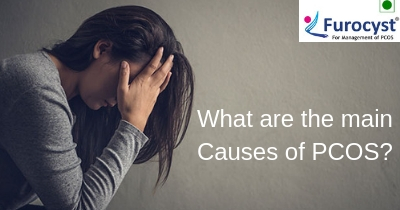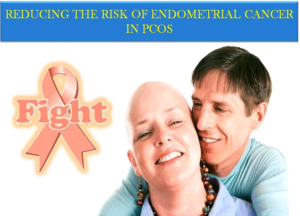[vc_row][vc_column][vc_column_text]
Ayurvedic Treatment for PCOS
According to a study conducted by the Endocrinology and Metabolism Department of AIIMS, about 20-25% of Indian women of childbearing age are suffering from PCOS. While 60% of women with PCOS are obese, around 40% have a fatty liver. For those who don’t know, Polycystic Ovary Syndrome (PCOS) is a hormonal disorder that affects a woman’s hormone levels. It results in a set of medical complications due to elevated male hormones called androgens in females. In recent times, there has been growing talk about curing PCOS with Ayurveda. pcos in ayurveda
Many have claimed to benefit from the health practices rooted in Ayurveda. So, let’s dig deeper into this and discover whether Curing PCOS with Ayurveda can help you cure or manage your PCOS.
Ayurveda & PCOS – Introduction
According to Ayurveda, the human body is comprised of three types of forces- Vata, Pitta, and Kapha which circulate within the body and help in performing important bodily functions. Any hindrance in any of these forces gives birth to diseases. Ayurveda texts propound that PCOS is a Vata type disorder, with the possibility of minor involvement of other doshas as well. Dominance of:
- Vata force manifests as painful menstrual periods, irregular or no periods, loss in weight.
- Pitta force manifests as hair loss, acne, painful periods, cardiac problems
- Kapha manifests as increased weight, infertility, hirsutism, diabetic tendencies.

Herbs to manage PCOS
Ayurvedic treatment for PCOS includes usage of natural remedies, ayurvedic medicinal formulations, and strict dietary norms and restrictions. Below are the herbs that can be helpful in managing the symptoms of PCOS:
- Varuna (crataeva nurvala) is an effective herb which clears the channels and helps in reducing the cyst size.
- Often called the king of all herbs, Hareetaki (Terminalia chebula) has laxative effects, which reduce the morbidity of your body.
- Bilva/Bael (Aegle marmelos) helps in producing more amount of insulin, which further helps in controlling diabetes.
- Punarnava (Boerhaavia diffusa) is a herbal slimming formula, that also prevents diabetes and heart problems.
- Shatavari (Asparagus racemosus) promotes fertility and is the most widely recommended tonic for females
- Guduchi (Tinospora cordifolia) is another effective Ayurvedic herb recommended for PCOS.
- Latakaranj (Caesalpinia crista) has shown encouraging results in cases of PCOS.
- Enriched with fatty acids, castor oil incorporates benefits for the fallopian tubes, lymph vessels, and uterus.
Panchkarma is an Ayurveda therapy that helps with PCOS treatment. It helps in cleansing, detoxifying and restoring the hormonal imbalance that causes PCOS. The practice includes a combination of four therapies: Vamana therapy, Virechana therapy, Basti chikitsa therapy, and Udvartana therapy.
Dietary norms & restrictions
For an effective treatment, Ayurvedic treatments require you to follow certain dietary norms. Below are some dos and DON’Ts for PCOS patients regarding an ideal diet:
- Cut down on the intake of dairy products with an exception to buttermilk.
- Say no to junk food.
- Avoid the intake of red meat, deep fried food, and eggs. You may eat fish.
- Replace sugar with honey, as sugar increases Kapha.
- Cut down the intake of nuts.
- Restrict the use of contraceptives.
- Include cinnamon, garlic, and fenugreek in your diet.
- Avoid smoking and alcohol consumption.
- Start drinking spearmint tea or green tea.
Ayurveda & PCOS – Concluding Note
Although Vedic texts do not make any direct mention of PCOS, one can find the description of some diseases which vary with PCOS in sign, symptoms, and causes. Curing PCOS with Ayurveda is all about leading a healthy life in a healthy way while following the practices laid down in Vedic texts.
The best way to Curing PCOS with Ayurveda would be to embrace the best medication for PCOS while adopting the dietary and lifestyle habits underlined in the Ayurveda. Don’t forget to seek your doctor’s advice and discuss all the PCOS related issues as well.[/vc_column_text][/vc_column][/vc_row][vc_row][vc_column][/vc_column][/vc_row]






































